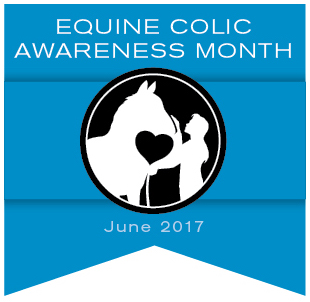Half a century ago, the care and feeding of horses looked very different than it does today. And half a century ago, colic wasn’t the death sentence for horses that it is now.
Horses lived out most of the time. They had a constant supply of grass or hay, and they ate very little processed feed. And it worked, because that lifestyle supports how the equine digestive tract is designed to function.
Today, how we care for horses is largely about convenience. Whether that routine is set by your barn manager, training and competition schedule, or limited land and resources, it’s all about maximizing time and efficiency. Unfortunately, what’s convenient for us isn’t always what’s best for our horses.
Horse Care Practices Hard on the Gut
We keep our horses stalled much of the time – where they can’t move and they can’t graze around the clock. Both of these are key to healthy gut function.
Time and money constraints mean that you or the barn help feeds something along the lines of two scoops of grain and two flakes of hay twice a day. These large, high-starch meals interfere with the healthy balance of microflora in the hindgut in particular.
Demands of training and competition require greater amounts of energy so we feed concentrates that are heavy on sugar and starches – which horses can’t easily digest.
All of this inhibits the healthy working of the GI tract, making it susceptible to all kinds of problems. Uncomfortable but treatable conditions like hindgut acidosis or ulcers may result. At worst, it can lead to a deadly case of colic induced by these less than ideal feed and management programs.
Induced Causes of Equine Colic
Parasites were traditionally thought to be the underlying cause of colic, but with today’s highly-effective de-worming programs that is no longer the case. Other common factors that contribute to induced colic include:
- Undigested starch reaching the hindgut
- Spoiled food
- Poor water intake
- Feed changes made quickly
These have a serious effect on the horse’s hindgut in particular, which is a key component of where colic starts.
The good news is that the causes of colic are all related to practices that can be changed. Learn how you can help your horse avoid a case of induced colic.






